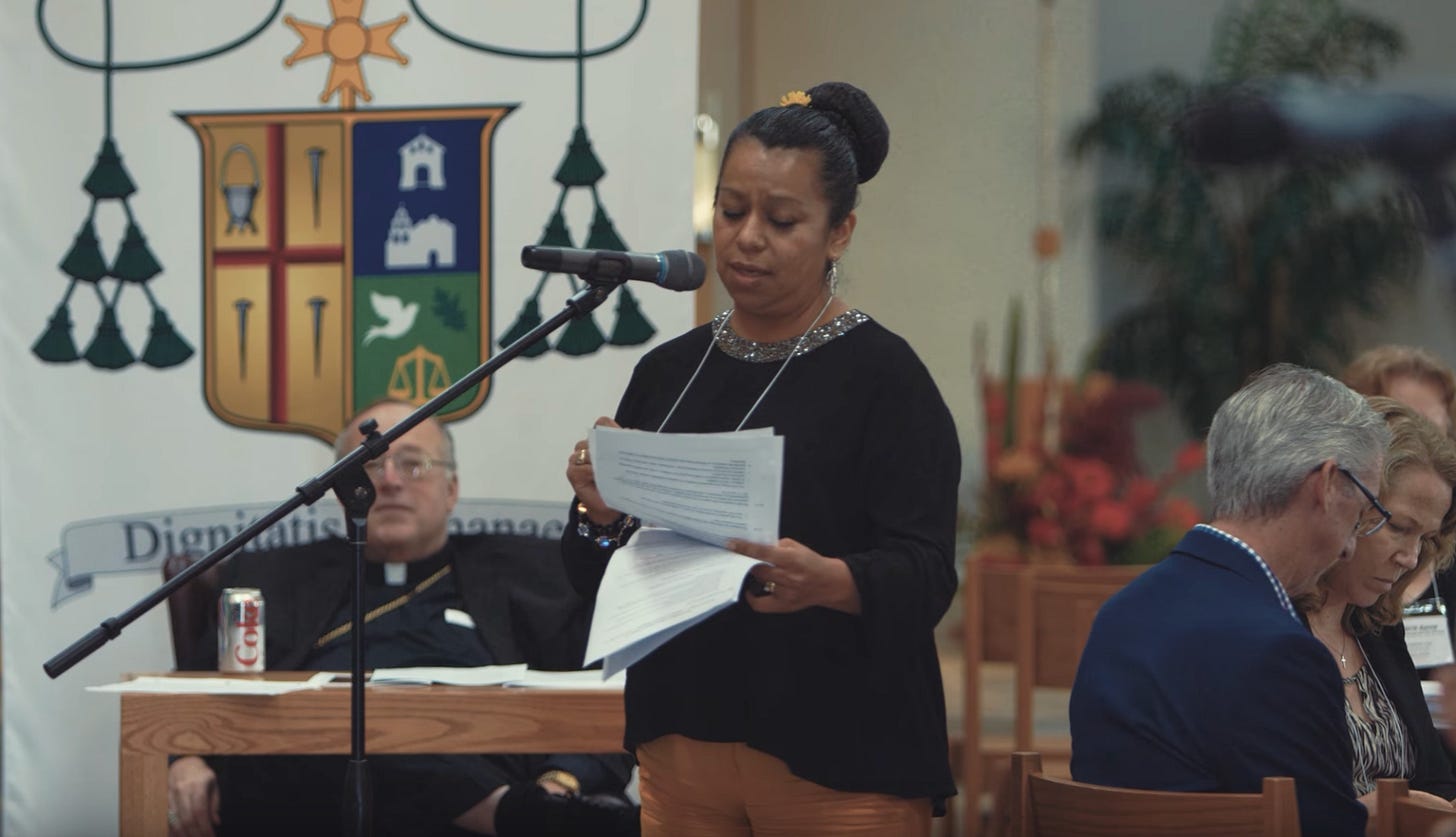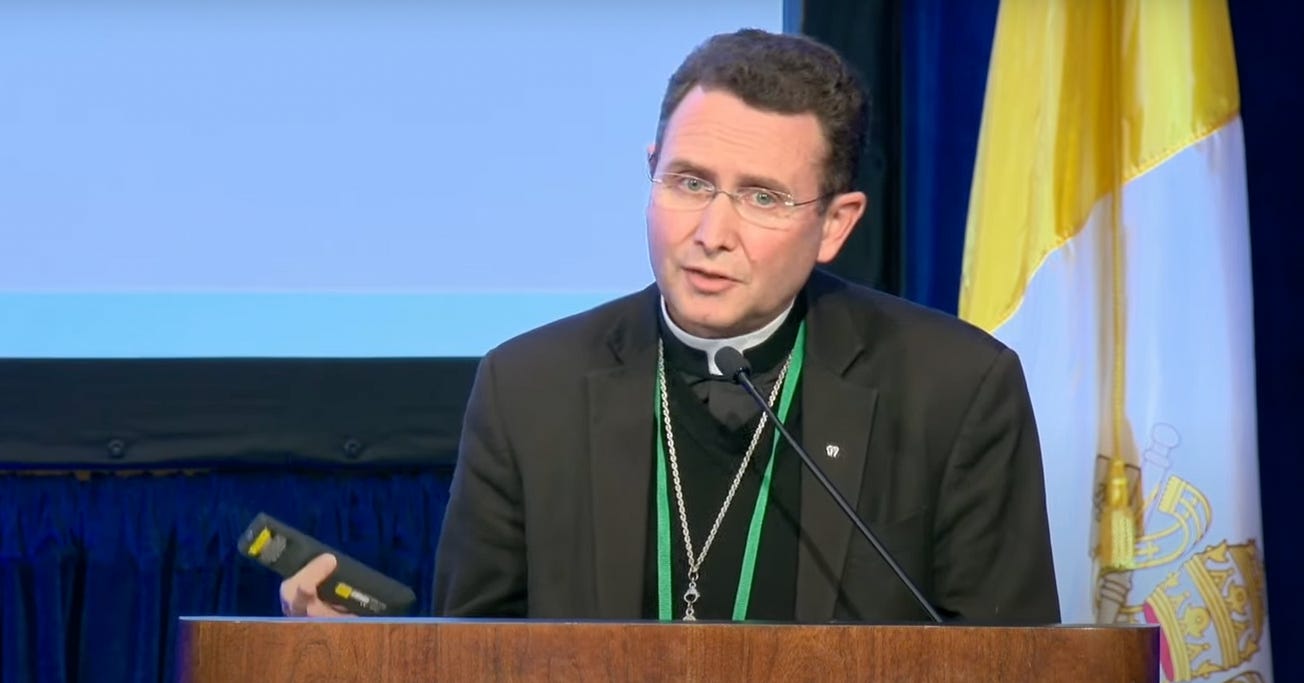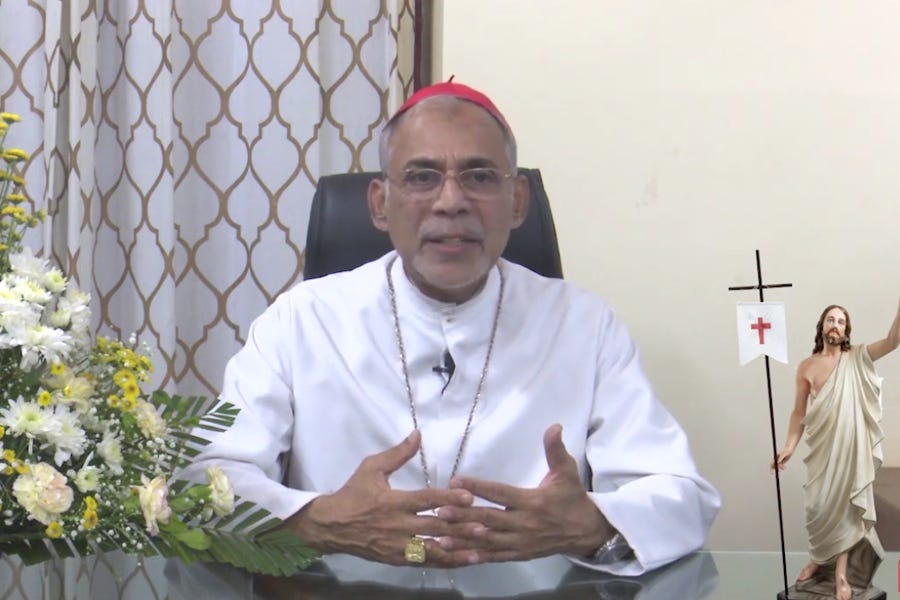The Diocese of Dallas will convene a diocesan synod later this year, Bishop Edward Burns announced in a pastoral letter last week. The diocese is among several in the U.S. that have convoked synods - large-scale strategic consultations - in recent years.

The 2021 Dallas meeting will begin on the 500th anniversary of the appearance of Our Lady at Guadalupe next December and will address the pastoral priorities of the diocese across a range of issues, including Catholic education, vocations, and evangelization. The synod is also projected to consider how existing Church structures can be better turned towards serving the mission and practical realities of the diocese — a move that has preceded parish mergers or other administrative changes in some dioceses.
A diocesan synod is a group of priests, laity, and religious sisters and brothers, convoked by the bishop to discuss matters pertaining to the life of the diocese, and to recommend courses of action that seem beneficial to the mission and ministry of the local church.
The synod is intended to encourage open discussion, but its recommendations are not binding on the bishop.
“A diocesan synod does not directly address doctrinal questions or Church teaching,” Burns said in his letter, dated 17 Feb., “but is focused on a pastoral plan, touching on all elements of the local Church.”
“At the synod meeting, many recommendations and suggestions of the faithful will be given to the synod body, who will consult and vote on resolutions to be presented to the diocesan bishop for implementation in the diocese.”
The synod in Dallas is expected to take three years to complete.
Dallas is the latest U.S. diocese to call a synod to help the local Church rethink and refocus its pastoral priorities. In 2019, Archbishop Bernard Hebda of St. Paul-Minneapolis announced that he will convene a synod for his archdiocese beginning Pentecost weekend next year. The dioceses of Detroit, Bridgeport, Burlington, Milwaukee, San Diego, and Washington, D.C. have all held similar synods in the past ten years.
While some dioceses have held synods to discuss how best to spend diminishing resources or address a shrinking Catholic population, the Diocese of Dallas is, like many dioceses in the South and West, growing quickly. The population of the diocese has more than doubled in the last 20 years; with more than 1 million Catholics, Dallas is among the largest dioceses in the U.S.
The rapid growth of the diocese has presented logistical challenges.
In 2019, a spokesperson for the Dallas diocese told Our Sunday Visitor that the diocese needs more churches, more Catholic schools, and more priests. The growing Hispanic Catholic population in the diocese also presents a need, present in many dioceses, to better serve distinct Catholic cultures existing within parishes and other institutions.
To be fruitful, synods require careful management and attention. While in some dioceses they have been criticized as only performative consultation, in other places their input has helped set the direction of resource allocation and strategic investment.
Synods are convoked among bishops themselves to discuss pastoral, evangelical, and theological issues for the universal Church, and can be convoked by the pope. Popes John Paul II, Benedict XVI, and Francis each regularly made use of synods to discuss universal or regional issues. Such gatherings are usually followed by an exhortation, in which the pope summarizes the discussion and recommendations of the synod, and offers his own reflections or positions on the topics under discussion.
While synod documents emanating from the Vatican are usually not given as much attention as other kinds of papal texts, some have generated considerable attention, including Pope Francis’ 2016 post-synodal exhortation Amoris laetitia — portions of which have been the subject of debate since the text was published.
Although synods have been called in the Church for centuries, the process has had a renewed emphasis since Vatican Council II. Pope St. Paul VI created the permanent secretariat for the Synod of Bishops in Rome as a way of carrying on the global collaboration of bishops after the council.
Pope Francis has often stated his desire for the Church to become more “synodal,” but the meaning of that term has often come up for debate. The International Theological Commission defines the term as “the action of the Spirit in the communion of the Body of Christ and in the missionary journey of the People of God,” while the pope has described synodality as “a style, it is a walk together, and it is what the Lord expects from the Church of the third millennium.”
Germany’s bishops’ conference has inaugurated a 2-year “binding synodal way” in partnership with the Central Committee of German Catholics. The German synodal way includes a program of reform for Church structures, but also proposes to discuss issues of universal Church teaching and practice on a range of issues.
In a letter to the faithful of Germany in 2019, Pope Francis wrote that “Synodality presupposes and requires the action of the Holy Spirit.”
“Despite all serious and inevitable reflection, it is easy to fall into subtle temptations,” Francis warned the Germans.
“If we are not aware of these temptations, we easily end up with a complicated series of arguments, analyses and solutions with no other effect than to stay away from the real and daily encounter with the faithful people and the Lord,” he said.
Since then, both the Vatican’s Congregation for Bishops and the Pontifical Council for Legislative Texts have issued warning against the German synodal process, ruling that, because it seeks to treat matters of settled Church teaching and universal discipline, the synodal plans are “not ecclesiologically valid.”
The meaning of the term, and what a “synodal Church” looks like, and how it functions, will form the basis for a forthcoming synod on synodality. In March last year, Pope Francis announced synodality as the topic of the next ordinary session of the Synod of Bishops, set to be held in Rome in 2022.




